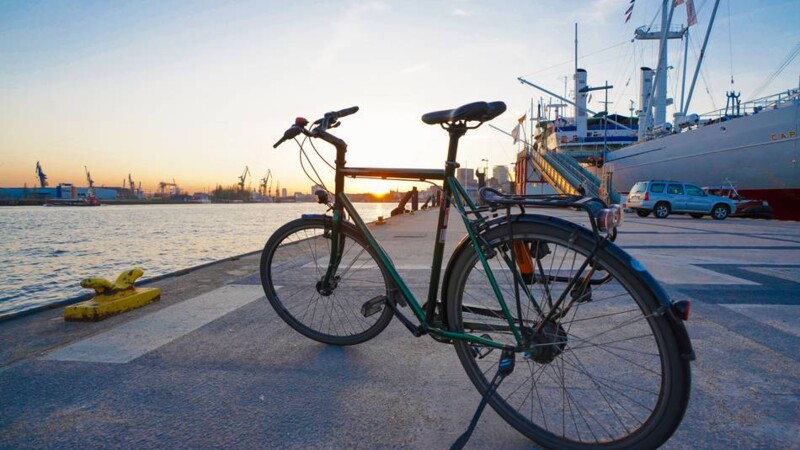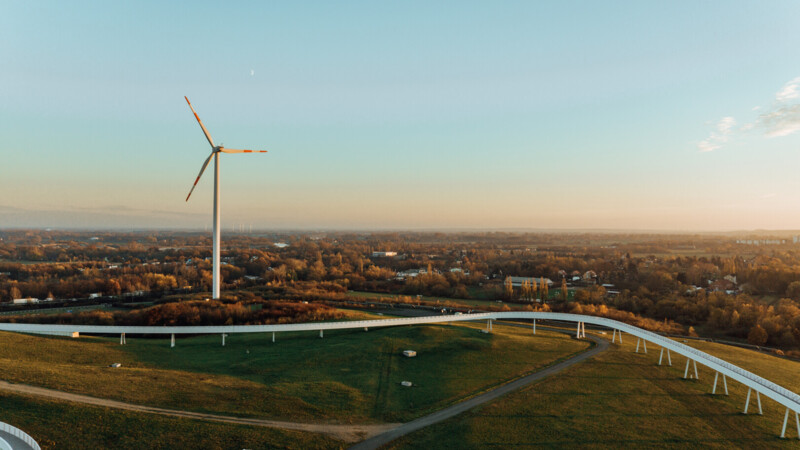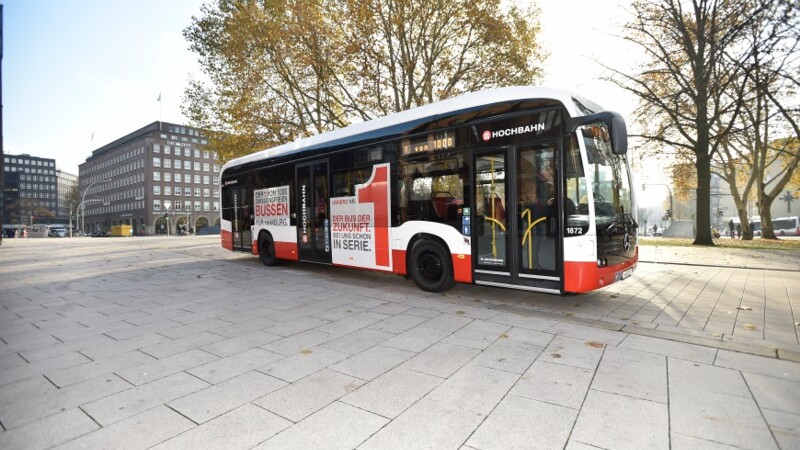The pure battery buses have a range of 150 or 200 kilometres depending on the generation and together with fuel cell buses should allow Hochbahn to phase out diesel buses by the end of the decade. The fleet will have been fully converted to emission-free drives by then. Fuel cells are highly versatile and have a great range.
Hamburger Hochbahn AG issued a tender Tuesday (August 4, 2020) for up to 50 fuel cell buses from 2021 to 2025. The company seeks to purchase pure fuel cell hybrid buses and to add range extender vehicles that are pivotal to converting the fleet to emission-free drives by 2030. The tender's specifications require minimum distances of 300 km for solo buses and 230 km for articulated vehicles. This was preceded by an Europe-wide procedure in which manufacturers had to qualify to take part in the tender.
Electric buses and hydrogen-powered vehicles
Hydrogen technology in urban transport
Hochbahn has several years of experience with hydrogen technology. The company tested fuel hybrid buses between 2014 and 2019 on Line 109 and developed them further with the manufacturer. Fuel cell hybrid buses run fully electrically. Hydrogen and oxygen react to form water and release electrical energy. When braking, a high-voltage battery is charged via so-called recuperation and the energy released by this battery is used when the bus is started. Water or steam is emitted. Fuel cell buses are comparatively quiet. Hochbahn currently has two battery buses with fuel cells as range extenders, which are used in regular service.
sb/kk/pb/
Sources and further information
More
Similar articles

EUR 47 million for electric mobility in Hamburg

Hamburg to host National Cycling Congress

Renewable energies sector calls for greater climate protection
